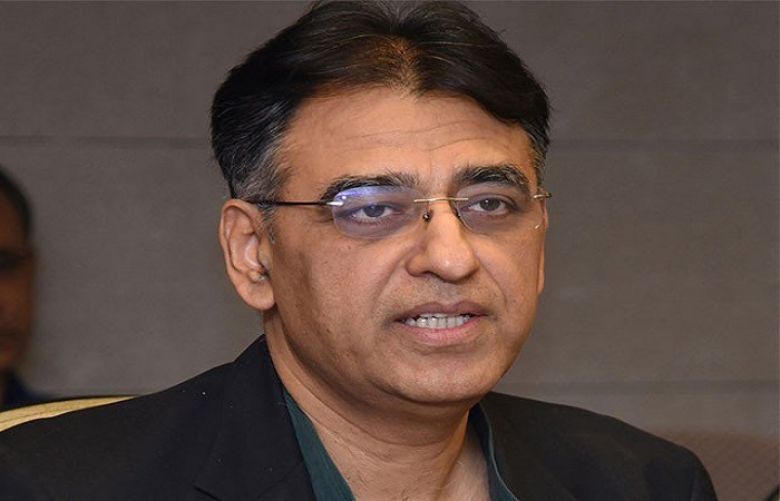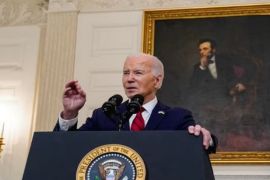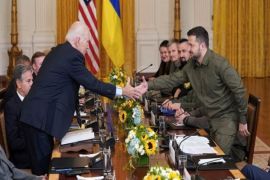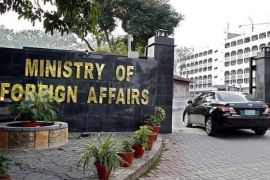Minister for Finance Asad Umar Wednesday said they took measures including devaluing Pakistani rupee, increasing interest rate, and hiking power and gas tariffs without waiting for the International Monetary Fund (IMF) to present its conditions.
The finance minister said so while speaking on BBC show 'Hard Talk'. He said these measures seemed necessary to them.
Umar said the surveys held to evaluate the performance of the economy, after completion of first 100 days of his government, suggested that the economy was moving in the right direction.
“Hope is very much in the air,” he said. "If you looked in reality, keeping aside the discussions going on in TV talk shows, you would find that a number of surveys got carried out recently, showed that the government was doing correct things to set the economy in the right direction."
To a question, the minister said when the current government came into power, it was a well-known fact that Pakistan needed some kind of bailout. Therefore, the government had to go around to the friendly countries to seek some kind of immediate assistance to support the reeling economy, he added.
Umar said when he became finance minister, the government reached out to friendly countries for bilateral financial assistance as well as starting a dialogue with the IMF simultaneously, because it had no time to first work out a strategy and then start negotiations.
“That was what I exactly did within 10 days of becoming finance minister, we reached out to International Monetary Fund and started formal dialogue with it along with going to the friendly countries for assistance,” he said.
To another query, the finance minister said, “We did not wait for the IMF to impose any condition on us..... We increased electricity prices, gas prices, we put in place a supplementary finance budget, we increased taxes, the currency has been adjusted by the central bank, and policy rate has also been increased.”
He said both the monetary and fiscal policies were moving in the direction of reforms that were required by the IMF.
“There is no difference of opinion with the IMF in terms of what needs to be done. It is the pace, the sequence in the extent which is being discussed,” he added.
To a question regarding Saudi Arabia’s assistance, the minister said, “I would be happy to be ashamed of standing out with a country with which we have close cooperation.... May be the western leaders should be ashamed of themselves talking about freedom, talking about democracy and reaching out in the same Saudi pockets to take billions of dollars of business deals and the leader of Western world Donald Trump stands up and openly says that 'I am getting very much business from Saudi Arabia so there is no need to worry about what happened to Jamal Khashoggi'.
“We are just consistent in the bilateral relationship with Saudi Arabia which remains the same regardless of which government is in the power,” he added.
Umar said Pakistan’s relationship with Saudi Arabia goes half a century back and it had got nothing to do with Yemen or Khashoggi.
With respect to investment under China-Pakistan Economic Corridor (CPEC) in Balochistan, he said Balochistan government was eager to enhance investment in the province under the corridor.
To another question, the minister said people of Balochistan are patriotic Pakistanis but there were some sponsored activities of terrorists who were trained and funded from outside of Pakistan.
“There is concerted efforts led by India to damage the CPEC. People of Balochistan have elected a government that fully stands by the CPEC and have also shown loyalty with Pakistan,” he said.
To a question regarding tax reforms, Umar said the government took several new initiatives aimed at enhancing tax base and revenue for socio-economic development of the country.
“The revenue generation aspect is absolutely central to be able to deal with the horrendous challenge that we have,” he said.
“Health and education situation needs drastic reforms and for that you need revenue and for that you need an efficient revenue authority,” the minister said, adding, “We have separated tax policy from tax administration.”
He explained: “Almost entire top leadership of revenue authority has been changed, modern technology is being utilised to chase out those, who are evading taxes and 3100 of them have already been served notices, whereas a list of over 7000 top tax evaders has been prepared.”







